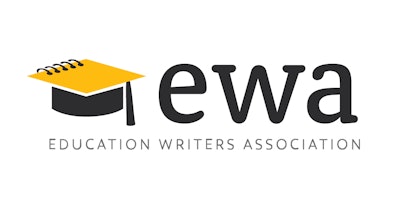
At a session called “Forgiveness, Fairness, and the Future of Student Loans,” moderated by Cory Turner, correspondent and senior editor at NPR, panelists were asked for their take on whether the Biden administration should erase some level of federal student loan debt (and if so, how much).
“If the question is should the Biden administration forgive all student debt, I’m a really clear no,” said panelist Dr. Sandy Baum, nonresident senior fellow at the Urban Institute, a think tank. “But I think it is important that people don’t see it as a clear yes-no. There are obviously people who need to have their debt cleared.”
Baum noted, for example, federal student loan borrowers who have been victims of fraud and abuse by their colleges, saying that they should have their debt erased. Yet she disagreed with broad student debt forgiveness, calling it “inequitable.”
“I feel really strongly that we need a viable system—and that if we forgive all this debt today, we will be right back to where we started from,” she said.
However, panelist Betsy Mayotte, president and founder of The Institute of Student Loan Advisors (TISLA), a nonprofit offering free student loan advice to borrowers, took a more middle path, saying it needs to be easier to forgive loans for “the most vulnerable borrowers.”
She pointed out that more than a million student loan borrowers in default owe less than $10,000. These borrowers most likely did not complete their degree, so they did not get an earnings boost from their education—yet are still in debt for it.
But Mayotte said talking about student loans exclusively misses the bigger picture.
“What has frustrated me is that student loan debt is the symptom not the problem—the problem is the cost of higher education,” she said. “So, asking me about student debt forgiveness is only asking me one half of the question. I would like the conversation about forgiveness to be more in tune with the point of these loans in the first place.”
Dr. Wil Del Pilar, vice president of higher education policy and practice at The Education Trust, a nonprofit advocacy group and think tank, added that the racial wealth gap is key to talking about student debt. Black women hold a disproportionate amount of the country’s student debt burden, for instance. He argued that student debt forgiveness would be a step toward remedying racial inequities.
But Del Pilar agreed with Mayotte that the college affordability problem can’t be overlooked. He noted that higher education has seen a rise in administrative spending in recent years—and a decline in instructional spending. Many students are also struggling with living expenses on top of tuition costs, so colleges working to lower tuition is only one part of the solution.
“We fund the students who need the most the least in this model of higher education,” added Del Pilar, referring to how more affordable community colleges often get overlooked in state and federal funding.
At a Monday afternoon session called “Eye on Federal Higher Education Policy,” James Kvaal, Under Secretary of the U.S. Department of Education (ED), addressed similar issues with moderator Eric Kelderman, senior reporter at The Chronicle of Higher Education.
“It really is true that so much of our conversation around higher education revolves around a relatively small number of places that pride themselves on the number of students they turn away,” said Kvaal on ED's shift to focus more on inclusive than exclusive colleges. “But if you’re talking about where the middle class comes from, about where we get more college graduates, which is critical to upward mobility, then you’re talking about community colleges and higher education institutions that enroll more students.”
Kvaal spoke about how the Biden administration in response has increased funding for Minority Serving Institutions (MSIs), including Historically Black Colleges and Universities (HBCUs). HBCUs in particular often punch above their weight, educating many of the nation’s low-income students without the resources of their wealthier, predominantly white peers.
“There is a real challenge in the way that we are financing college,” added Kvaal. “If you believe as I do that our country badly needs these vehicles for upward mobility, but then you have many cases of student debt draining those benefits away from people, where people are sometimes worse off than never having gone to college at all, then we need to think about doubling the Pell Grant and increasing funding for MSIs and HBCUs and community colleges. This also includes making sure that colleges that routinely put students into debt they can’t afford are held accountable.”
Kelderman also asked Kvaal about student loan forgiveness, referring to EWA’s earlier session on the topic. For weeks, reports have circulated that the Biden administration may soon forgive roughly $10,000 in federal student loan debt. But no moves have been made. Critics have also been questioning if Biden has the executive authority to make debt forgiveness happen.
“The question about forgiving student debt for all student loans is something that we continue to study,” said Kvaal. “And we don’t have the answer for that today.”
As for what comes next in the federal higher education policy realm, Kvaal said that ED will soon release a new package of regulations tackling such accountability issues as what happens when a for-profit college changes ownership to become a nonprofit college.
“I think what is important is getting it right,” said Kvaal on ED. “The wheels of government are not always known for being fast. But if you look across the department, we’re making a lot of progress.”
Rebecca Kelliher can be reached at [email protected].



















